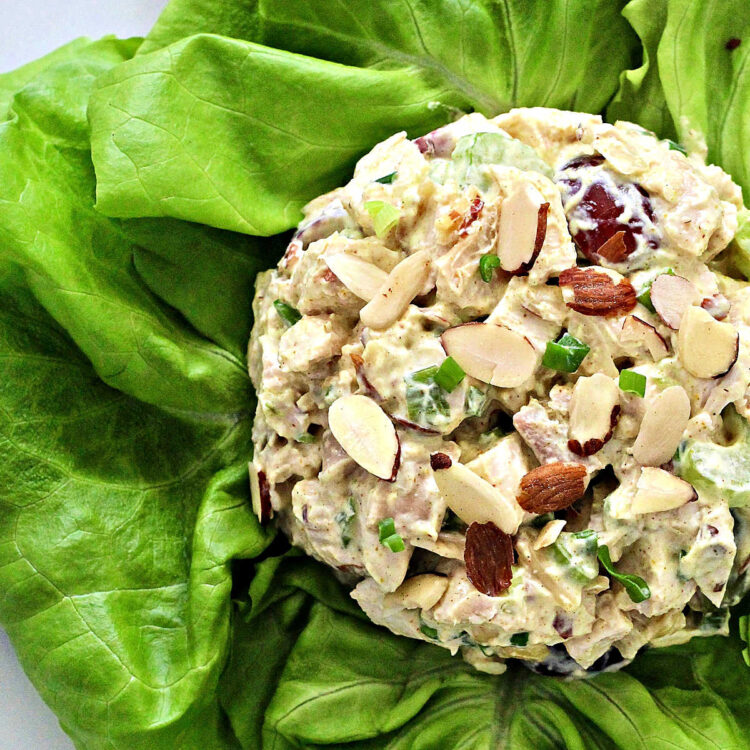Greek yogurt is everywhere these days! Read all about Greek yogurt nutrition, including why it's so popular and if it really is healthier than its traditional counterpart. Plus, get tasty recipe ideas so you can incorporate Greek yogurt into your diet.

You may have noticed that Greek yogurt is everywhere these days. I even wrote a cookbook about it! Greek yogurt, which is a staple in other parts of the world such as Europe and the Middle East, is richer and creamier than traditional yogurt. Now it's popularity has spread to the US and sales of Greek yogurt have skyrocketed in this country.
Multiple brands are popping up in grocery stores and many major yogurt manufacturers are introducing lines of Greek yogurt to get in on the competition. You may have even seen many other new products using Greek yogurt, including frozen yogurt and granola bars.
Is Greek yogurt healthier than regular yogurt?
Both types of yogurt are made with milk that has had live bacterial cultures added to it, causing it to ferment. The fermentation process thickens the yogurt and gives it a tangy flavor. The yogurt is then strained to remove the liquid whey.
The difference between the two types of yogurt is that Greek yogurt is strained much more extensively to remove most of its whey. Because it is strained so much, it takes a lot more milk (up to 4 times as much) to make the same amount of Greek yogurt than regular yogurt. The result is a thicker, creamier texture similar to sour cream.
Greek yogurt nutrition vs regular yogurt:
- Protein- Greek has more protein than regular yogurt- almost double the amount. The high protein content helps keep you feeling full longer. It’s a great option for breakfast to give you long-lasting energy throughout the morning. It can also be a good source of protein for vegetarians.
- Carbohydrates- Greek has less (roughly half) carbohydrates than regular yogurt because a lot of it is lost during the extensive straining process. This makes it a great option for anyone watching their carbs, including diabetics. But be careful because the carbs can add up if you add a lot of sweeteners to your yogurt.
- Fat- Greek actually has more saturated fat than traditional yogurt. Saturated fats in your diet should be limited because they raise cholesterol levels and increase your risk of heart disease. So, if you’re going Greek, choose the fat-free or low-fat varieties instead of full-fat. The good news is that the lower fat versions are so creamy and thick, you won’t miss it.
- Sodium- Greek has less sodium than traditional yogurt because a lot of it is lost in the straining process. This makes it a great option for anyone watching their sodium intake.
- Calcium- Greek yogurt has less calcium than regular yogurt because once again, some of it is lost through the straining process. Although Greek yogurt still contains a good amount of calcium, if you are worried about your calcium intake, make sure you get adequate amounts from other sources.
So what’s the final verdict?
With more protein combined with less sugar and sodium, Greek yogurt does have a nutritional edge over regular yogurt. But with this said, keep in mind that both types of yogurt are good for you and provide probiotics that are beneficial for digestive health- just make sure the label states that it contains live, active bacterial cultures.

How To Incorporate Greek Yogurt Into Your Diet
If you like the natural tangy flavor, you can eat it plain or if you prefer a little sweetness, try adding a bit of fresh fruit or honey. It makes a great breakfast layered simply with fresh berries and granola.
Although some people might find Greek yogurt a little too tangy, keep in mind that every brand is different in taste and texture. The specific types of bacterial cultures that are used are what determine the flavor and texture of the yogurt.
Greek yogurt is very versatile and can be used in so many different applications, both savory and sweet. It makes a great, healthy substitute for calorie- and fat-laden condiments like mayonnaise and sour cream.
- Use it as a topping on tacos or quesadillas instead of sour cream.
- Stir caramelized onions into it and use it as a dip for vegetables. Or blend it with creamy avocado and zesty herbs and spices in my avocado yogurt dip.
- Try substituting half the mayonnaise with Greek yogurt in dishes like chicken salad, potato salad or Ranch dressing.
- Use it as a marinade for meats to tenderize them and add flavor.
- Blend it with fresh fruit and flaxseed to make an energizing smoothie.
- Use it to add moisture and a boost of protein to baked goods like muffins, cookies or banana bread.
- Stir it into overnight oats for extra creaminess and a boost of protein.
Check out my Grilled Peaches with Greek Yogurt, Curried Chicken Salad, and Strawberry Oatmeal Blender Pancakes below. All of these delicious dishes have Greek yogurt in them!



More Greek Yogurt Recipes

YOUR PATH TO WELLNESS STARTS HERE!
Get my best healthy recipes and tips sent straight to your inbox!











Jupiter Ascending says
Good to know it has so much more protein.
Patricia says
Hello, I'm Patricia also a doctor, aspiring Pediatrician, currently studying for my local board exam. I just stumbled upon your blog, Sonali, and this old post you have about greek yogurt really caught my attention as I was looking for new recipes using this wonderful ingredient! Personally, I was able to successfully make Greek Tzatziki, my boyfriend's favorite dip made with greek yogurt, grated cucumber, olive oil, and dill. I always have a batch made for him in the fridge to snack on with pita bread, carrots, and celery, keeping him away from too much candy and cakes. haha I agree on what you say that greek yogurt is indeed more superior than regular yogurt when it comes to nutrition. I have been surfing through your blog for less than an hour and I'm already amazed with all the good and healthy food that you have here. I can't wait to try your recipes once I'm done with my exams. Keep it up Doc! ^_^
sonaliruder says
Thanks, Patricia! I always love meeting fellow doctors who are foodies 🙂
I love making tzatziki- it's one of my favorite dishes and its a great, healthy snack. So glad you found my blog. I hope you'll try out some of my recipes. Good luck with the boards!
ur says
You know that we LOVE Greek yogurt. I never thought that grilled peach with Greek yogurt will make such a delghtful dessert. I am trying it before the season is out.
sonaliruder says
Great! Let me know how it goes if you try it!
Anonymous says
How ripe should the peaches be for the grilled recipes?
sonaliruder says
I would use firm peaches that are ripe or slightly underripe. The grilling process will soften them slightly and bring out their sweetness. Good luck!
Debi....Recipes For My Boys says
My mouth is watering! The grilled peaches are a favorite as is greek yogurt. I made regular yogurt a couple of weeks ago and loved it. I plan on straining the next batch I make. Thank you for sharing on Thursday's Treasures Week 46. <3 and hugs, dear one!
Amee Livingston says
I could make a meal out of these gorgeous peaches!! Thank you for sharing them,Sonali!
motherrimmy says
This is very helpful information. I make my own Greek yogurt, but I'm not sure if it is truly Greek yogurt. I was taught to strain low fat yogurt in cheese cloth until it's a thickened consistency. Do you think it's the same thing, or should I be buying it instead?
sonaliruder says
Thanks for stopping by! I think that your homemade yogurt sounds great and it's probably more economical than buying it in the store! No need to buy it if you're doing the same thing at home.
Ericka Breedlove says
I love substituting greek yogurt in lots of different recipes; it tastes great and it's much healthier. Thanks for all the great facts on greek yogurt, and thanks for sharing them on Foodie Friends Friday!
Marlys Folly says
Thanks for sharing this with Foodie Friends Friday. Remember to come back on Sunday to vote.
Marlys Folly says
Saw this on fit and fabulous. Always wanted to grill peaches ~ hopefully I will be able to do it sometime this summer... each time I have grilled so far, I either don't have peaches or they aren't ripe enough.
Ally says
I could literally brush my teeth w/Greek yogurt...and w/fruit or whatever, it makes everything seem elegant to me...love to grill the fruit, too...just brings out the sugars and flavors...outstanding presentation, Sonali!! xo Ally
Lynda @ TasteFood says
You know I am a fan of Greek yogurt! Thanks for the informative post.
laurenkellynutrition.com says
Great information Sonali! Greek yogurt is an amazing source of protein!! 🙂
ann says
How did you know I wanted to grill peaches tonight? These look mouth-watering and the photos are beautiful!
MaryMac says
My favorite brand is Greek Gods. Others don't come close to a fine, almost sweet taste. Let's say it is more palatable. It is used as a replacement for sour cream in some of the dishes I might make.
I often have made a cucumbers with sour cream but switched to using the yogurt and coarse chopped cucumbers to make a side dish or a main dish for a cool lunch. Add garlic, a bit of salt, vinegar, dill and eat it up! Almost like an Indian condiment served with other spicy dishes.
Greek Gods Yogurt might use different bacteria at the start that can make it taste differently and I just can't say I like any other brand I have tried. I can eat the plain right out of the container with nothing added. My dessert is the Greek Gods honey variety and I will just put that in my ice cream machine and eat my treat frozen.
I'm a bit sad and upset that my favorite brand is not in my neighborhood supermarket although they have brought in other brands. *sigh*
sonaliruder says
I've actually never tried Greek Gods. Great idea to make it into frozen yogurt! I make a cucumber raita with Greek yogurt- sounds very similar to the dish you make.
Terra says
Greek yogurt makes me happy!!! There is so many ways to enjoy this delicious treat:-) I am having fun creating 52 ways to enjoy Greek yogurt, YUM! Thank you for sharing all the info! Hugs, Terra
Abby says
I love greek yogurt! Very informative post, I love the protein boost before a workout and it's usually my go to breakfast. I'd love to try it with grilled peaches though 😀
sonaliruder says
Thanks, Abby! I love it too and often take it to work for a quick and nutritious breakfast.
Rebecca Walker says
So far one of my FAMILY'S favorite uses is your Tandoori Chicken Kabobs! What is YOUR favorite brand of Greek yogurt?
sonaliruder says
Glad to hear it, Rebecca! I can't say that I've tried all the brands out there but I like to use Fage 0% or 2%. Interestingly, Cooks Illustrated ran a story last year where they taste tested several different brands of Greek yogurt. Their winner in the nonfat and full fat categories was Olympus and in the 2% category, Fage was the winner.
Fooibi says
I tried grilled peaches with greek yogurt...delicious !!! My family enjoyed it very much...great recipe!
Fooibi
sonaliruder says
Thanks Fooibi, so glad you liked it!
sandy says
How much sugar does it have? I didnt see where you list the sugar grams...............thats what concerns me................
sonaliruder says
Don't be concerned! I always list the nutritional information in standard format at the bottom of each recipe. You can calculate the net carbs (sugar plus starch) by subtracting the grams of fiber from the total carbohydrates.
To give you a concrete example, a serving of Danon nonfat Greek yogurt (5.3 oz) has 6 grams of carbohydrates compared to a serving of Danon nonfat plain yogurt (6 oz), which has 12 grams of carbohydrates. Because the yogurt has no fiber, the sugar grams are roughly equal to the net carbs.
Remember that each brand of yogurt differs in terms of nutritional content, so always read the labels. Thanks for your question!